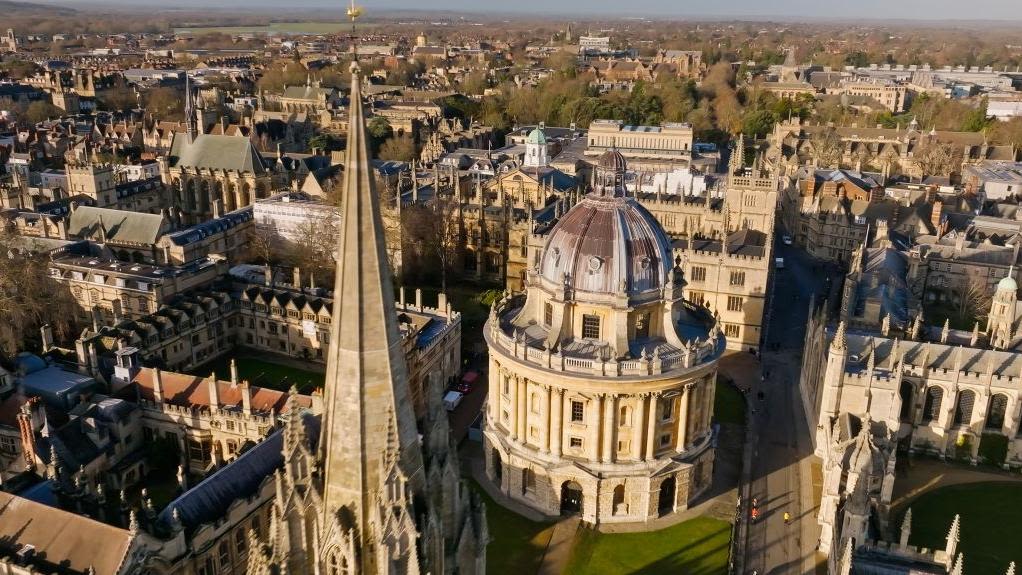

Only 30 prizes are awarded throughout the UK each year, with the 2024 prizes covering the following subject areas: Classics, Earth Sciences, Physics, Politics and International Relations, Psychology, Visual and Performing Arts. Each prize winner receives £100,000 which can be used for any purpose related to the advancement of their research. The University of Oxford was the only institution this year to have four award winners.
Among the awarded researchers, one is from the Medical Sciences Division:
Associate Professor Miriam Klein-Flugge (Department of Experimental Psychology), whose prize recognises her work on experimental psychology, and cognitive and computational neuroscience.
Associate Professor Miriam Klein-Flugge’s research group studies human cognitive processes, with a particular focus on motivation and decision making. She intends to use the Philip Leverhulme Prize funds to continue her research on human decision-making and behavioural flexibility. This will involve developing innovative experiments which combine novel ultrasound brain stimulation techniques alongside more realistic methods of measuring people’s behaviour, such as virtual reality simulations or tracking behaviour over time through smartphone apps. This will enable her to explore the causal relationships between different decision-making processes in real-world situations. Her long-term vision is to conduct fundamental research that provides a platform for translation to psychiatric disease.
She said: ‘This recognition is a testament to the incredible people I’ve had the fortune to work with throughout my career. It also reflects the increasingly interdisciplinary nature of science and psychology, highlighting the importance of collaboration across different fields. I believe it’s this rich exchange of ideas that truly drives innovation.’
Other awards were granted to:
Associate Professor Natalia Ares (Department of Engineering Science), who received the Philip Leverhulme Prize for her work on experimental quantum physics.
Professor Federica Genovese (Department of Politics and International Relations), who was awarded a prize for her work on the international politics and political economy of climate change.
Professor Louise Slater (School of Geography and the Environment), whose prize was for her work on floods, droughts, and climate impacts.
Congratulations to all the awardees!
more recommended stories
 Red Meat Consumption Linked to Higher Diabetes Odds
Red Meat Consumption Linked to Higher Diabetes OddsKey Takeaways Higher intake of total,.
 Pediatric Crohn’s Disease Microbial Signature Identified
Pediatric Crohn’s Disease Microbial Signature IdentifiedKey Points at a Glance NYU.
 Nanovaccine Design Boosts Immune Attack on HPV Tumors
Nanovaccine Design Boosts Immune Attack on HPV TumorsKey Highlights Reconfiguring peptide orientation significantly.
 High-Fat Diets Cause Damage to Metabolic Health
High-Fat Diets Cause Damage to Metabolic HealthKey Points Takeaways High-fat and ketogenic.
 Acute Ischemic Stroke: New Evidence for Neuroprotection
Acute Ischemic Stroke: New Evidence for NeuroprotectionKey Highlights A Phase III clinical.
 Statins Rarely Cause Side Effects, Large Trials Show
Statins Rarely Cause Side Effects, Large Trials ShowKey Points at a Glance Large.
 Anxiety Reduction and Emotional Support on Social Media
Anxiety Reduction and Emotional Support on Social MediaKey Summary Anxiety commonly begins in.
 Liquid Biopsy Measures Epigenetic Instability in Cancer
Liquid Biopsy Measures Epigenetic Instability in CancerKey Takeaways Johns Hopkins researchers developed.
 Human Antibody Drug Response Prediction Gets an Upgrade
Human Antibody Drug Response Prediction Gets an UpgradeKey Takeaways A new humanized antibody.
 Pancreatic Cancer Research: Triple-Drug Therapy Success
Pancreatic Cancer Research: Triple-Drug Therapy SuccessKey Summary Spanish researchers report complete.

Leave a Comment